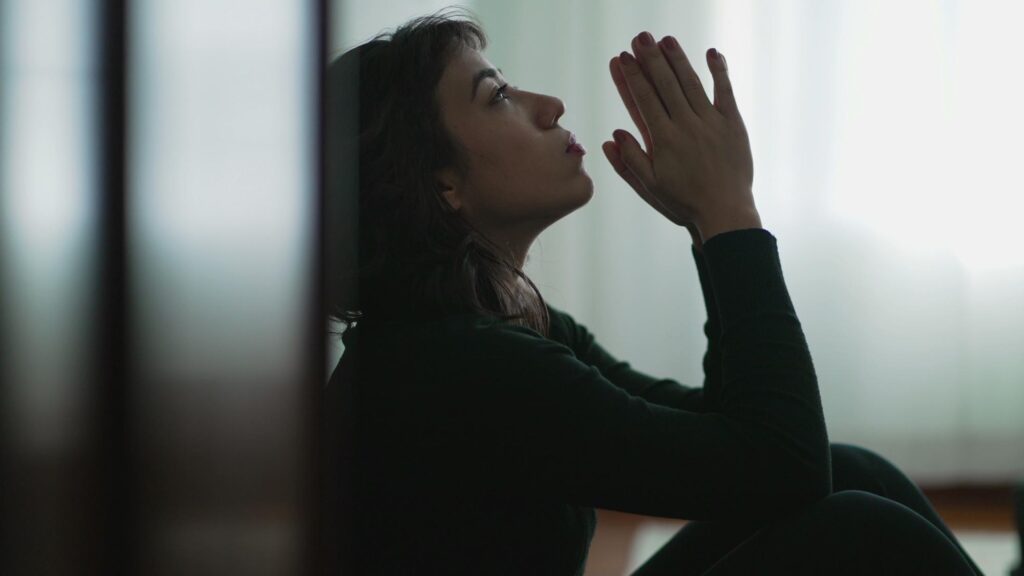When you hear the term ‘bipolar disorder,’ what comes to mind? For many, society has painted a picture based on dramatic movie or TV characters whose behavior is erratic and explosive. While these portrayals are memorable, they often miss the nuanced reality of the condition and create a skewed perception of the actual Signs of bipolar disorder. To separate fact from fiction, it’s essential to understand that this is a complex mood disorder that manifests differently in everyone, not a personality quirk.
At its core, the condition is characterized by significant shifts in mood, energy, and activity levels. These aren’t just simple mood swings; they are intense emotional states that cycle between the elevated ‘highs’ of mania or hypomania and the deep ‘lows’ of depression. Understanding these distinct, opposing emotional poles is key to recognizing the symptoms in yourself or a loved one.
It’s crucial to know that everyone’s experience is unique. While it can be more intense in some, with severe manic episodes, it may be more subtle in others, presenting as periods of high energy and productivity (hypomania) that can be easily missed. Regardless of whether it runs in your family, knowing the signs is not about applying a label. It’s about gaining clarity and empowering yourself or a loved one to seek an accurate diagnosis and effective treatment, which can lead to a stable, fulfilling, and well-managed life.
It’s crucial to know that everyone’s experience is unique. While it can be more intense in some, with severe manic episodes, it may be more subtle in others, presenting as periods of high energy and productivity (hypomania) that can be easily missed. Whether it runs in your family or not, recognizing the signs is not about applying a label. It’s about gaining clarity and empowering yourself or a loved one to seek an accurate diagnosis and effective treatment, which can lead to a stable, fulfilling, and well-managed life.
What Is Bipolar Disorder?

Bipolar disorder, once called manic depression, is a mental disorder that causes unusual shifts in mood, energy, activity levels, concentration, and the ability to carry out day-to-day tasks. Like other mental illnesses, there are different types of bipolar disorder. They involve emotional episodes of irritability or high energy, known as mania or sadness, and hopelessness described as depression. Bipolar I includes manic episodes that last about a week and sometimes require hospitalization and longer depressive episodes. Bipolar II has a pattern of both manic and depressive episodes but tends not to include such intensity. Even with these definitions, some people can experience bipolar disorder outside of these categories, making it more difficult to pinpoint and diagnose. The causes of bipolar disorder are unknown. However, it is suspected that genetics, brain function, and environmental factors affect the likelihood.
How to Recognize Bipolar Disorder
Based on the image of bipolar disorder you often see in the media, it seems it would be simple enough to notice, but that is not always the case. Bipolar disorder can be intense or subtle and isn’t something the sufferer always notices on their own. Typically, it is diagnosed during the late teens or early twenties. It can be triggered by trauma or stress like losing a loved one or going through a breakup. People with bipolar disorder experience periods of unusually intense emotion, changes in sleep patterns and activity levels, and uncharacteristic behaviors, usually without recognizing the harmful effects on their life. This is more common with less extreme symptoms. Some people with bipolar disorder may experience hypomania, a less severe form of mania. This means that instead of being strangely energetic, they feel good. They may be productive and active. Functioning better than they usually do might not feel bad, so the person with bipolar disorder may not notice these changes, but usually, close friends or family will. Even though these effects seem harmless, even less serious symptoms can become dangerous without proper treatment.
Some of the most common signs of bipolar disorder are:
- The symptoms of manic episodes:
- Feeling high or elated
- Feeling jumpy or wired
- Being quick to anger or seeming extremely irritable
- Having racing thoughts and talking very fast
- Needing less sleep
- Increased sense of self-confidence
- Risky behavior, poor judgment, overspending, or substance abuse
- The symptoms of depressive episodes:
- Feeling very sad, hopeless, or worthless
- Feeling lonely or isolating yourself from others
- Memory loss and slow response times
- Reduced energy
- Increased fatigue and sleep changes
- Changes in appetite
- Lack of interest in your usual activities and being unable to do even simple things
- Thinking about death or suicide
What to Do When You See the Signs of Bipolar Disorder

Despite experiencing such intense extremes, this emotional instability often goes unnoticed. Even significant disruptions to one’s life can be ignored, leading to a lack of treatment. Sometimes, someone with bipolar disorder may even enjoy the extreme emotions they feel. They may feel productive and energized during a manic episode. However, following euphoria, a crash is always impending. This can lead to not only depression, but ending relationships, losing one’s job, and financial or legal trouble.
If you experience any signs of bipolar disorder, it is best to speak to your doctor. It will not improve on its own, so getting professional treatment is the only method of handling the symptoms. A doctor will diagnose bipolar disorder by discussing your symptoms, history, experiences, and family history. When you first notice changes in your mood or behavior, try to keep a diary or journal of the patterns. This can assist your doctor with understanding your experience.
In most cases, bipolar disorder requires lifelong treatment with medication and therapy, but that does not need to hinder your level of happiness. A treatment plan will help you manage symptoms and improve the quality of your life.
Bipolar disorder does not need to be overpowering. With the proper treatment, people with bipolar disorder live healthy and fulfilling lives. The diagnosis of bipolar disorder is not always a simple one as it is a different experience for everyone. Determining your symptoms and how they affect your life is a great place to start. Asking loved ones about changes they’ve witnessed helps you understand your symptoms as well. If you experience signs of bipolar disorder, speak with your primary care physician as soon as possible to obtain a diagnosis and treatment plan. Depending on the severity, you may be able to start a routine now or enter into a treatment facility to get full control over your mental health in a safe and secure environment surrounded by supportive professionals. At California Care Detox & Treatment, we provide unmatched care for bipolar disorder so you can take back control of your life. Learn more by messaging us or calling now at (949) 281-0632.
